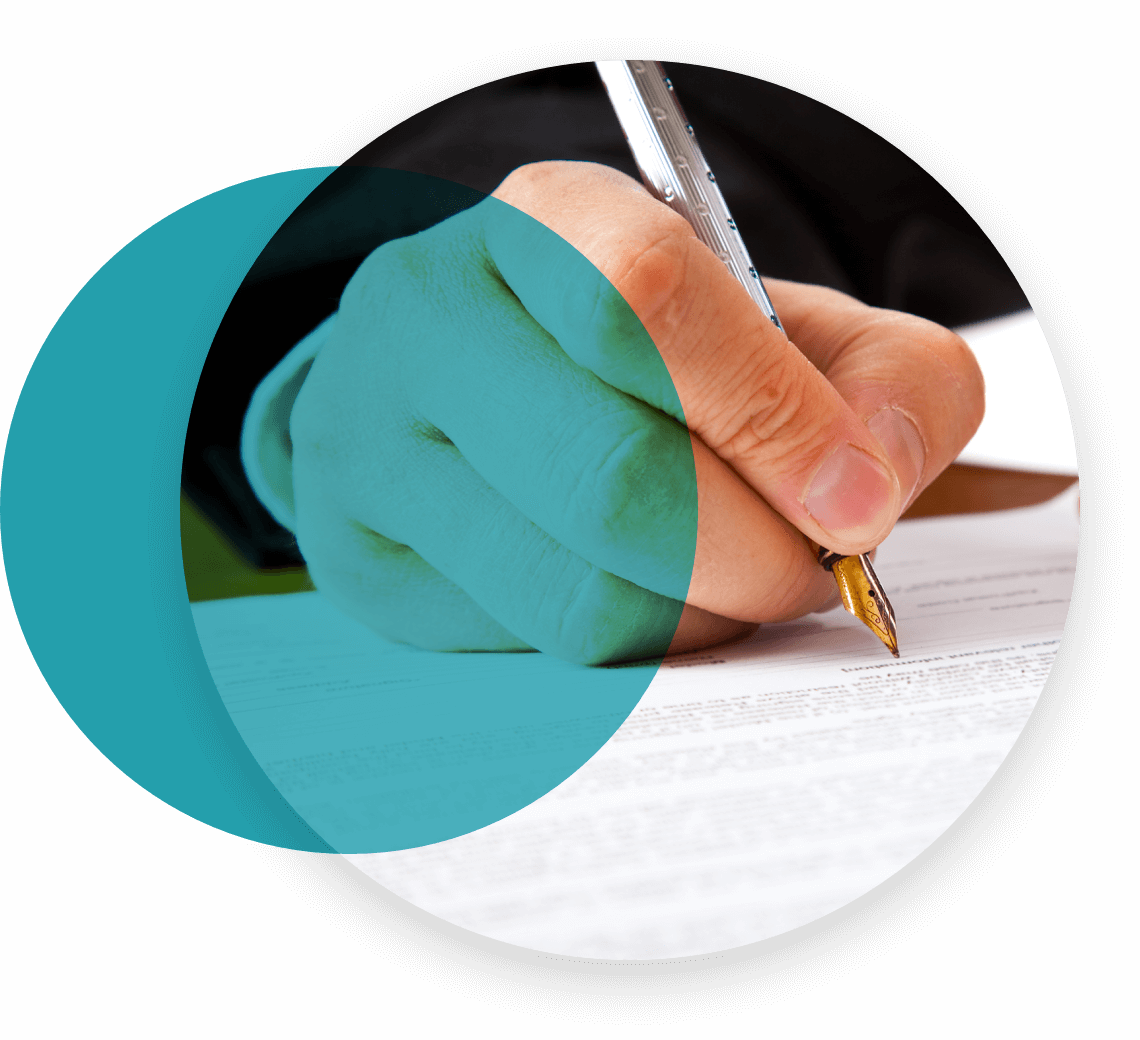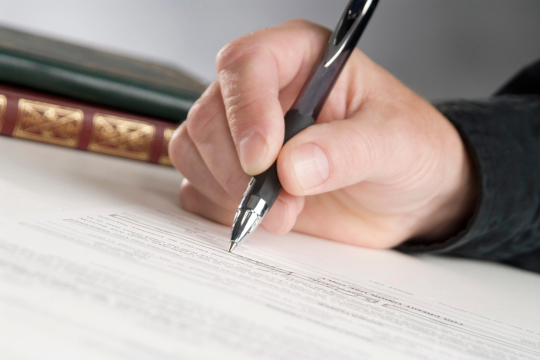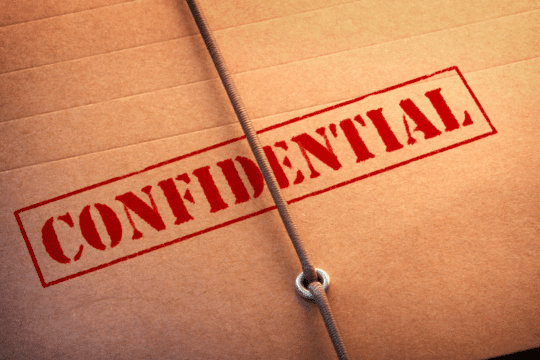You have worked hard to provide for your
family and loved ones.
Undoubtedly, you will have worked very hard during your lifetime to provide for your family
and loved ones. Having a valid will is the only means by which you can ensure your
family, friends and loved ones are properly provided for upon your death.
What is a will?
A will is a legal document which sets out how you want your assets to be distributed when you die.
Any person over the age of 18 who has the mental capacity to understand what they are doing can make a will. In limited circumstances, a court can approve a will made by someone under the age of 18. Where a person does not have the mental capacity to make their own will, a court can approve specific wills made on their behalf.

What if I don't have a will?
If you do not leave a valid will when you die, you are said to die “intestate” and your assets will be distributed in accordance with legislation. There are a number of disadvantages to this, such as:
- You will have no control over the distribution of your estate;
- Family members, friends and loved ones who you intended to benefit from your estate may receive nothing;
- There is no power to appoint a guardian for minor children; and
- Your estate may be administered by someone you would not have appointed.
The absence of a valid will can make what is already a challenging time for those closest to you more difficult than it needs to be.
How do I know if my will is valid?
For a will to be valid, you must satisfy the following criteria:
- You must be over the age of 18;
- The will must be in writing (either handwritten or typed);
- The will must be signed by you and witnessed by two witnesses;
- At the time of signing the will, you must have testamentary capacity, which means you understand the effect of the will, you are aware of the extent of your assets, and you are aware of the people who might expect to benefit from your will.
Our lawyers can help you determine whether your will is valid, and importantly, whether it needs to be updated.

I have a power of attorney, do I need a will?
A power of attorney is a legal document which gives a person power to act on your behalf while you are alive, but this power will cease upon your death. Your will then comes into effect and the executor appointed under your will manages your estate.
Can someone contest my will?
Having a will drawn by a lawyer is the best protection you can buy your estate against potential challenges and claims. However, a will can be contested if it is alleged:
- That the will was incorrectly executed or tampered with;
- That the will was executed under pressure from others;
- That the will maker was incapable of making a will;
- That the meaning of the will is unclear.
In addition, a person can make an application to the Supreme Court for a share (or an increased share) in an estate if they can show that the deceased had a responsibility to make adequate provision for their maintenance and support in their will and has failed to do so.
Contesting a will can be a complicated and difficult process, and strict timelines apply. If you are concerned about a challenge to your will, or alternatively, wish to challenge someone else's will, our team of estate and disputes lawyers can guide you through the process.
Contact a Wills and Estates Lawyer.
Our role as your lawyer is to provide you with independent professional advice on how best to structure your will to ensure that your estate is properly managed and distributed.
We will work with you to gain an understanding of your personal and financial circumstances in order to make sure that adequate provision is made for those left behind. Having one of our lawyers assist you in preparing or revising your will to suit your individual needs will afford both you and your family peace of mind.
Julie Chambers.
Practice Group Leader.
- Wills & Estate Planning
- 03 9890 3321
- Email Address: j.chambers@robinsongill.com.au
Kelly Brown.
Associate.
- Property and Wills & Estates
- 03 9890 3321
- Email Address: k.brown@robinsongill.com.au
Mikayla Shaw.
Lawyer.
- Wills & Estate Planning
- 03 9890 3321
- Email Address: m.shaw@robinsongill.com.au
Carol Havelos.
Legal Clerk.
- Wills, Estate& Probate
- 03 9890 3321
- Email Address: c.havelos@robinsongill.com.au
When should I update my Will?
As your personal and financial circumstances change, you should take the opportunity to review and revise your will. We recommend that you revisit your will at least every five years or when a significant personal events such as the birth of a child, a relationship breakdown, or the death of a family member takes place.
Even if you choose not to revise your will, certain personal events and changes, such as marriage or divorce, may affect your will without your knowledge and your will could even be rendered invalid.
We can assist you to review your current will and ensure it affords you and your family adequate protection and security.
Resources & FAQs
Answers to common questions in
relation to the expertise.
Why Should I Make a Will?
When considering the future and the inevitable matter of one’s own passing, the importance of making a will cannot be understated. Not only does it ensure that your assets are distributed according to your wishes, but it also alleviates potential disputes amongst loved ones.
What You Need to Know Before Creating a Will
Creating a will is a fundamental step in managing your estate and ensuring that your wishes are honoured after your passing. This article aims to equip you with the essential knowledge required to create a will that accurately reflects your intentions.
Different Types of Wills: Choosing the Right One for Your Needs
When thinking about the future, preparing a will is a crucial step in ensuring your wishes are honoured. In Australia, there are several types of wills, each catering to different needs and circumstances. Understanding these differences is vital in choosing the right will for your situation.











